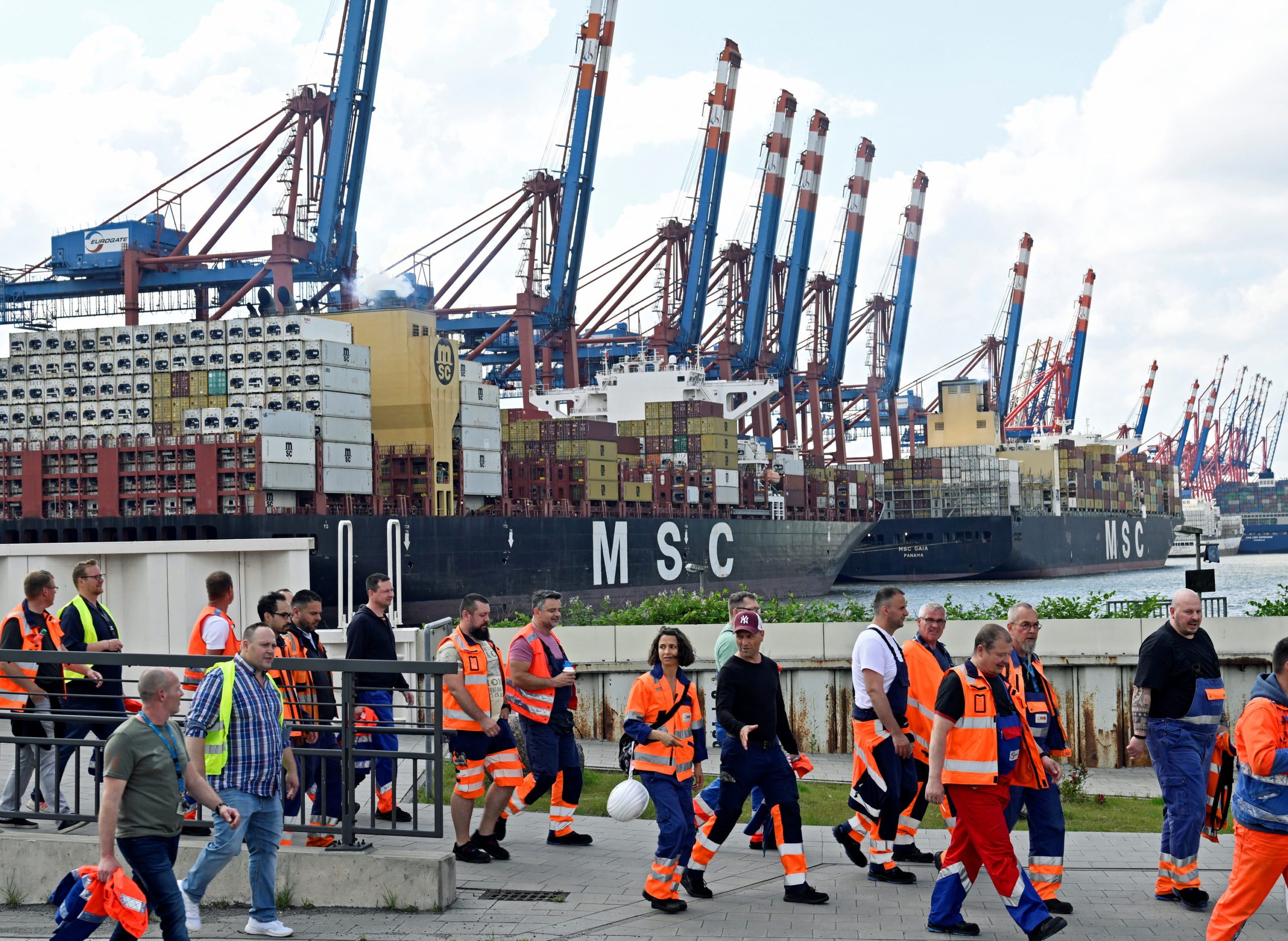Boskalis to Fully Acquire Smit Lamnalco
Royal Boskalis B.V. (Boskalis) has signed an agreement to acquire the remaining 50% shares in Smit Lamnalco, thereby taking full ownership of the company. Smit Lamnalco, known for providing terminal...


Workers leave the Eurokai Container Terminal as they go on strike for higher wages in the harbour in Hamburg, Germany, June 9, 2022. REUTERS/Fabian Bimmer
By Mike Wackett (The Loadstar) –
Shipping lines serving North Europe’s third-biggest container port, Hamburg, are bracing for further industrial action after wage talks were aborted at the weekend.
Negotiations between German port employers and dockworkers trade union ver.di ended without a result on Saturday after 10 hours. The union described a revised offer from the Central Association of German Seaport Companies (ZDS) as “inadequate”.
“This offer is far below the real wage protection demanded by ver.di, in view of the current rate of price increase of 7.9%, and is therefore unacceptable for the employees,” said the union’s chief negotiator, Maya Schwiegershausen-Gueth.
The third round of negotiations that started on Friday was proceeded by a ‘shot across the bows’ warning strike by 12,000 port workers at Hamburg, Bremerhaven, Wilhelmshaven and Emden during the late shift on Thursday.
It was the first industrial action at German ports in decades and was slammed by ZDS lead negotiator Ulrike Riedel as “not doing justice to the collective bargaining”.
She said: “We have a comparatively high wage level in German seaports. In the last round of negotiations, given the currently challenging inflation rate, we made an offer that compensates for the losses of our employees in real wages. This offer is in line with many other current ver.di collective bargaining agreements. The fact that strikes are now being called in the current crisis framework is completely unacceptable.”
She added that there was “a large wave of delayed ships” expected at German ports in the coming weeks, which would add further stress to the supply chain, and that the industrial action strategy by the union was “absolutely irresponsible”.
Both ZDS and ver.di say a new negotiating date is to be agreed “in the next few days”, but shipping lines fear there will be more calls by the union for so-called ‘warning strikes’ to ramp up pressure on employers.
Ocean carriers using Hamburg’s main container hubs, at HHLA and Eurogate, had plenty of time to navigate the industrial action disruption on Thursday, but it is all adding more pressure to cargo operations at the port.
Moreover, the two largest container hubs of Rotterdam and Antwerp are heavily congested and will be unable or unwilling to handle transhipped German imports if the industrial action escalates.
Maersk said its hubs at Bremerhaven and Rotterdam were its “most severely congested North European ports” and its networks were operating “under severe pressure”.
Hapag-Lloyd said yard occupancy at Hamburg’s Container Terminal Altenwerder (CTA) stood at 90%, “mainly caused by the discharge of heavy import vessels and reduced import pick up rates”.
Indeed, one feeder operator executive told The Loadstar Hamburg was “sitting on an enormous pile of export containers” that are a frustrated shipment casualty of terminals becoming overwhelmed with import boxes.
“Hamburg is still a nightmare and neither us nor the terminal operators know when or how things will get better again,” he said.
The Loadstar is known at the highest levels of logistics and supply chain management as one of the best sources of influential analysis and commentary.Join the gCaptain Club for curated content, insider opinions, and vibrant community discussions.


Join the 107,032 members that receive our newsletter.
Have a news tip? Let us know.
Access exclusive insights, engage in vibrant discussions, and gain perspectives from our CEO.
Sign Up




Maritime and offshore news trusted by our 107,032 members delivered daily straight to your inbox.



Essential news coupled with the finest maritime content sourced from across the globe.
Sign Up